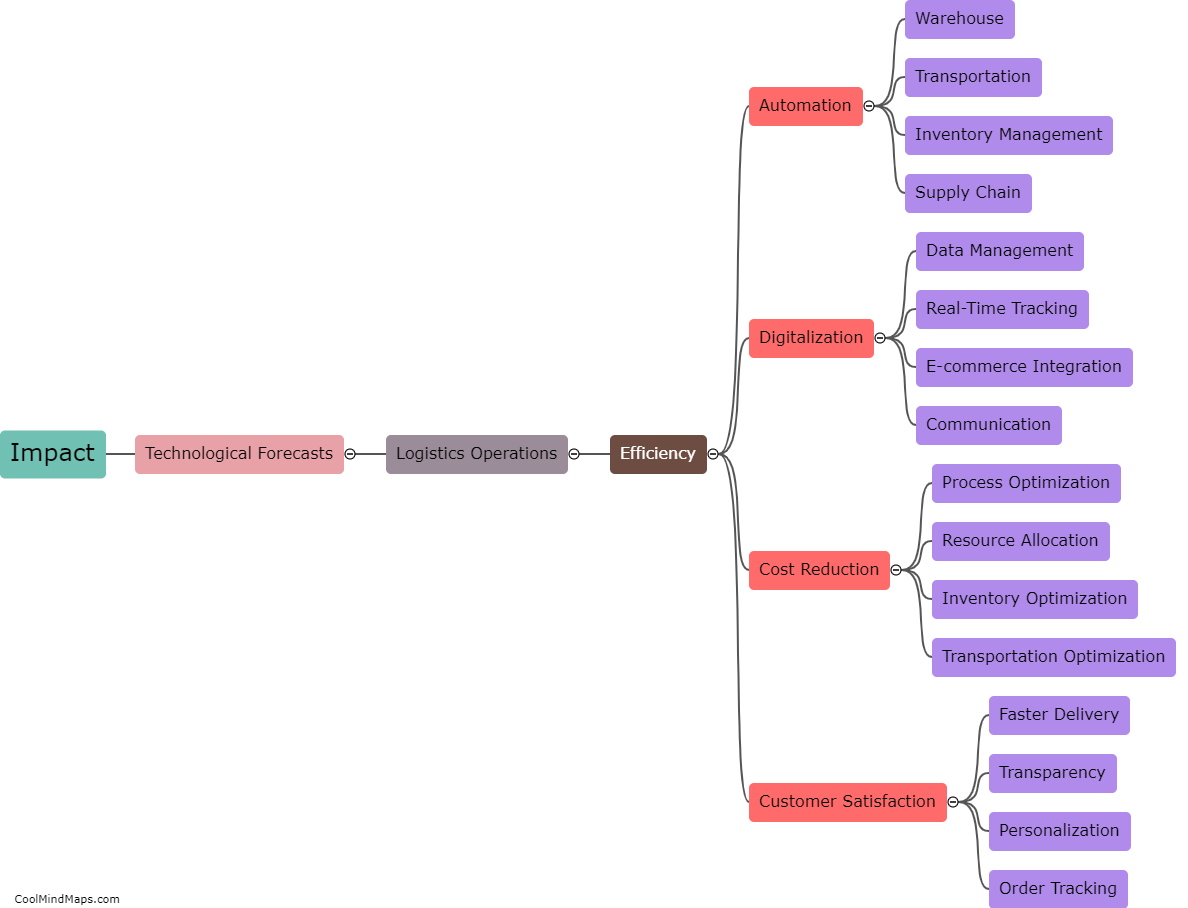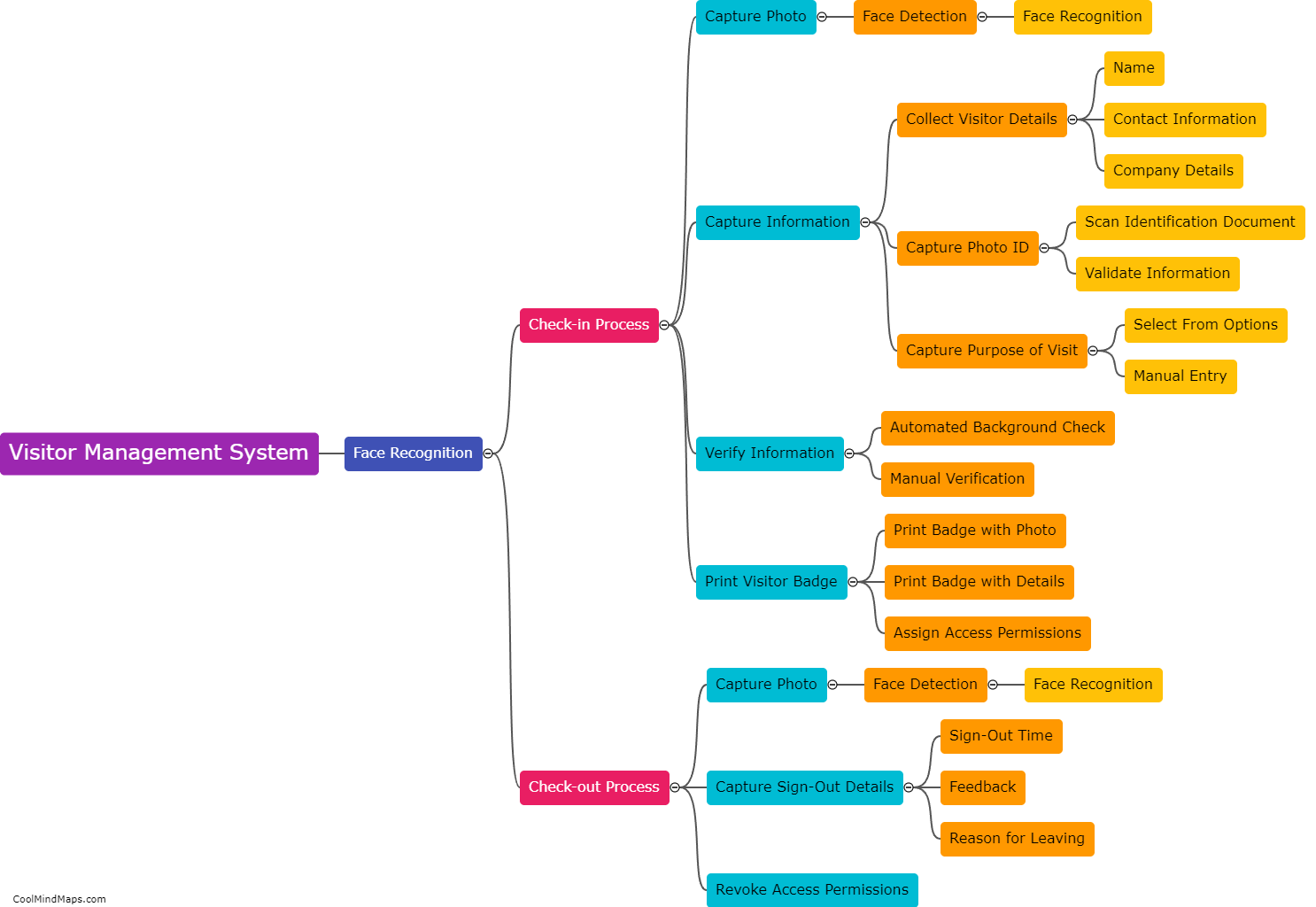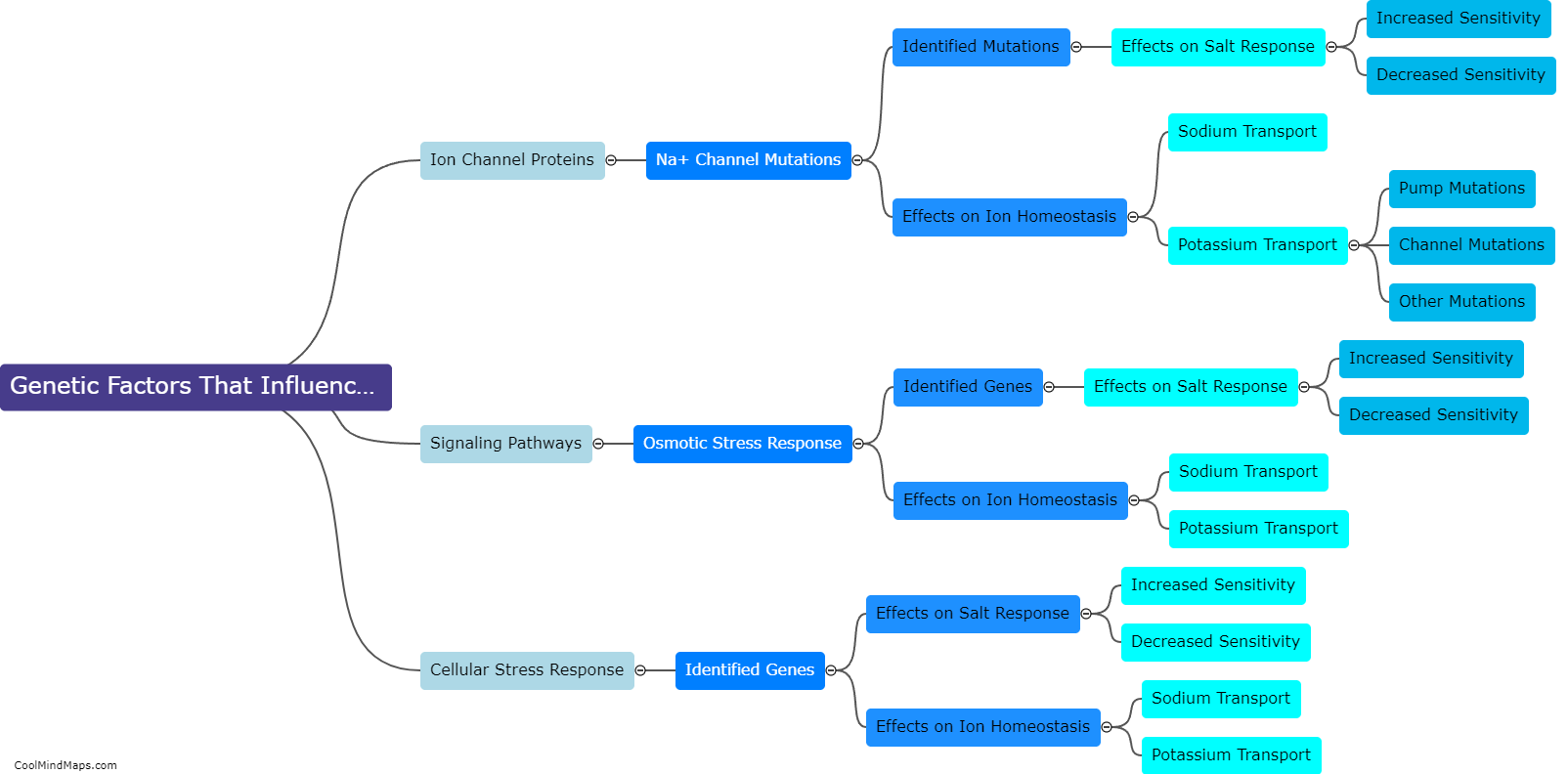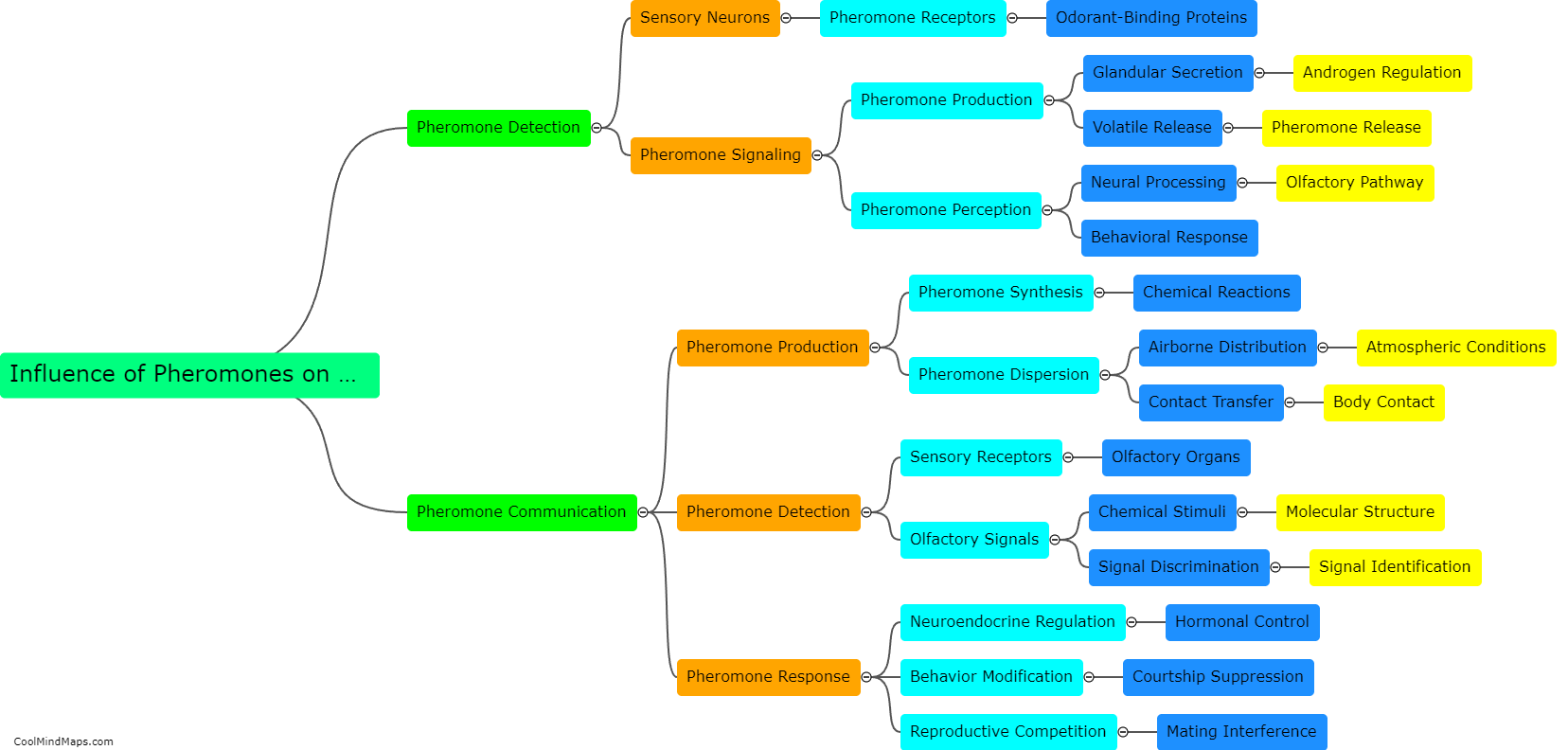What are the physiological changes in drosophila due to high salt?
High salt levels can induce various physiological changes in drosophila, or fruit flies. One of the primary effects of elevated salt concentration is dehydration. As salt inherently draws out water, drosophila exposed to high salt experience an imbalance in their fluid regulation system, leading to a decrease in body water content. This dehydration can result in shrinkage of the flies and impaired physiological functions. Additionally, high salt conditions can disrupt ion balance in drosophila, affecting their osmoregulatory mechanisms. This imbalance interferes with their ability to maintain proper physiological processes, such as neurotransmission, muscle contraction, and cellular homeostasis. Overall, high salt levels have a detrimental impact on the physiology of drosophila, primarily by causing dehydration and disrupting ion balance.
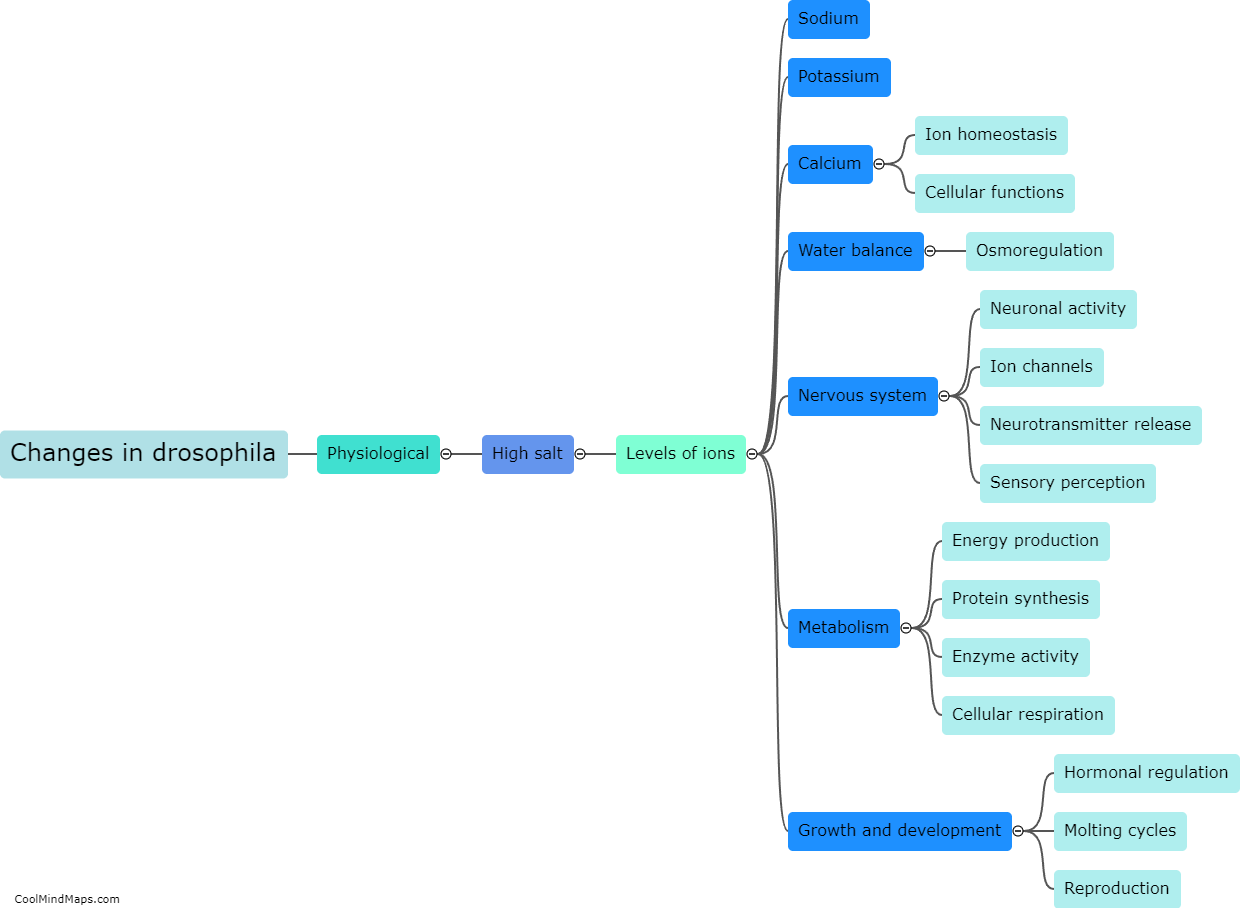
This mind map was published on 19 September 2023 and has been viewed 86 times.



